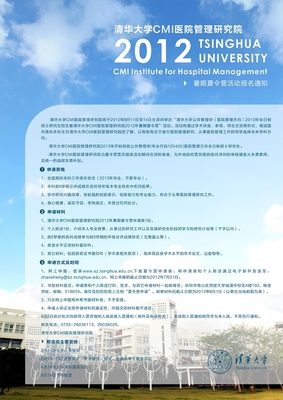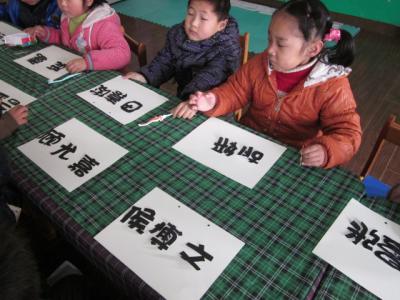Photo credit: Debra HurfordBrown
Jeanette Winterson has asked to meet me in Oxford. The venue is StCatherine’s, the university’s youngest college. It’s a peacefulplace in the east of the city, all glass and grass, concrete andwater, at once harmonious and contradictory, old and new.
All very fitting for an encounter with the ever irreconcilableWinterson, a writer whose first novel, Oranges Are Not The OnlyFruit, was and wasn’t, about her own childhood, and whose memoir,arriving 26 years later, is in some ways just as fabulouslyconfounding.
Designed by Danish modernist Arne Jacobsen, the college opened in1962 and his influence remains everywhere in the calm geometry ofthe quadrangles and the door handles that Winterson invites me tostroke when I leave, saying with a smile: “I used to love these.”Everything in the master’s lodge, which we’ve borrowed for theoccasion, is listed so nothing can be changed, which makes it feellike you’re entering a time warp. Or re-entering the past.
Oxford is where Winterson came after she got out. It’s whathappened, if you like, after the last page of Oranges. Gettingherself here was an audacious move. As she says in her memoir, WhyBe Happy When You Could Be Normal?, “I decided to apply to readEnglish at the University of Oxford because it was the mostimpossible thing I could do.”
Winterson knew no-one who had been to university. She was a workingclass girl from Accrington, a mill town in Lancashire, adopted as ababy by an evangelical Penetecostal couple. She had left home at 16and had since been sleeping in her Mini or at a teacher’s house.Her mother, who kept a gun in the duster drawer and the bullets ina tin of Pledge in preparation for the Apocalypse, had discoveredshe was in love with a girl. It was as her daughter prepared towalk out of the door forever that she said “why be happy when youcould be normal?”
When Winterson arrived here in the late Seventies (she failed theinterview then pitched up again insisting they offer her a place,which they did) she felt like “Jude the Obscure in Thomas Hardy’snovel, and I was determined not to hang myself”. How aboutnow?
“It’s strange. I haven’t been in this room for 30 years. But timeis never linear. You always feel that everything happened justyesterday but also 100 years ago. I don’t want to experience timein a line. That’s why I felt completely comfortable in Why BeHappy… with missing out 25 years.”
Ah, yes. The 25 years. Her memoir, as idiosyncratic as all herbooks, has a hole in the middle like a doughnut. There is thefrightening, sad, lonely and plucky childhood living under the“flamboyant depressive” Mrs Winterson (and “poor Dad” as he’susually called). There is the escape to the “energetic quiet” ofOxford. Then she skips 25 years. When we catch up with Wintersonagain it’s 2008, she’s just found her adoption paper, and she’sgoing mad (her words, not mine).
“Once you’ve made that decision you have to stick to it,” she says.“The story is about the presence of one mother and the absence ofthe other. And it’s my complete inability to do anything in order.I’m like a cat. They can’t walk in a straight line, and neither canI.”
People often compare Winterson to an animal. Sometimes she is aterrier, sometimes a woodland creature. The idea is that she’ssmall, fierce, fast, and strong. Then there’s the way she looks.The gravity-defying hair, which she likes to run her hands through,encouraging it to shoot upwards. The bright eyes, bookended withcrow’s feet. It’s a lively, cheeky face, the face of someone whosesense of humour has survived. Today, in a black shirt, black skinnyjeans, Converse, and lime-green socks, she looks much younger thanher 52 years.
The books tend to go their own way too, and whether for adults or,more recently, children, are rich in story and ideas, love anddeath. She is intense on the page and in person, pouncing betweensubjects like a cat with a ball of yarn. She is famouslycharismatic, and not just because of the well-documented loveaffairs with Pat Kavanagh, the late wife of Julian Barnes and, mostrecently, the psychoanalyst Susie Orbach. Even the photographer(female) texts me afterwards, calling her “a breath of fresh air”.In a recent interview, the journalist (male) mused over whether itwas too late to “turn” her. (She also told him her birth mother isdead, interestingly, which is not true and hints at her sense oftheatre, play and danger.) A lot of what’s been said aboutWinterson (that she lives amongst a court of admiring handmaidens,for example) is ridiculous and can be blamed on the stereotype ofthe predatory lesbian. But no doubt about it, she has more charismathan a Pentecostal preacher.
She is attractive partly because she refuses to be a victim. Thisis what Winterson tells me about living in her Mini. “I neverthought that was a problem, not once I got the order of what to doin the front and the back. It’s about control, isn’t it? If you goaround thinking ‘I’m homeless, this is terrible’, then you are andit is. If you think, ‘This is my Mini and I read and eat in thefront and sleep in the back’, then you have a life.”
“It’s a good job I’m small,” she notes. “If I was 6ft 4in my lifemight have been very different.” And she laughs. I tell her I wasimpressed by her discovery at school that wetting a dog biscuit anddipping it in icing sugar makes it taste like a regular biscuit.“Have you tried it?” she asks me. No. “That’s so wussy of you. Goand get a Bonio. Actually they’re probably awful now, full ofadditives …”
The latter part of Winterson’s memoir is taken up with the searchfor her birth mother (alive and well and living in Manchester), andher own battle with madness that culminated in a suicide attempt.But there is more laughter than you might expect during our long,serious conversation. I expected Winterson to be tricky andpossibly a bit bonkers. She is, in fact, great company: warm,candid, and interested in the bigger picture. She has unfairly beenaccused of arrogance, mostly because she once doorstepped ajournalist who wrote a bad review and because in 1995, amidst adecade when she fell out of literary favour, she was asked to nameher favourite living writer and chose herself, which I think ispretty funny.
We talk a lot about Mrs Winterson. “She was very negative and thatwas the difference between us,” she says. “For her, life really wasa cosmic dustbin with the lid on and nobody was getting out. But Ihave become more compassionate towards her in a way that isunexpected. I try and look at her in the context of her world. Inthe beginning she was just this sole figure, this monster, thistower, this creature. It was just me and her. But away from that Isee her as part of the war generation and as a clever working classwoman with no opportunities. It helps to see yourself as part ofhistory rather than just sitting here with your own stuff.”
Why Be Happy… is a much sadder book than Oranges. Reading themtogether, you notice the invented bits in Oranges are often thehappy bits, like her friend Elsie who didn’t exist. She callsOranges a cover version: she needed it to write her way out of thepast, or write over it. “I suppose that the saddest thing for me,”she writes, “is that I wrote a story I could live with. The otherone was too painful. I could not survive it.”
Is Why Be Happy… the other one? Not exactly. “This is just anotherversion,” she insists. “It’s a true story that’s a version. Whoknows how I’ll see it in another 25 years.”
In this version the young Jeanette is constantly told that “theDevil led us to the wrong crib”. She is forced to sleep in the coalhole, or locked out overnight on the doorstep, defiantly guzzlingthe milk delivered in the morning. When Mrs Winterson discovers shehas fallen in love with a girl, a terrifying and abusive exorcismis performed by the church elders (this is also in Oranges, but the“true” version is much worse). And all the time, she is trying toread books. When Mrs Winterson finds them under her slowlyascending mattress, she burns them. Winterson picks up the scrapsand memorises them. Their battle is between happiness andunhappiness and the young girl’s spirit is unbreakable. She refusesto live, as Mrs Winterson does, in End Time.
Yet there is a sense she feels she understood Mrs Winterson toolate. “She died just before I was 30,” she says. “There was not alot of time and the only person who could have sorted it out wasme. And I wasn’t ready to make it right. So it could only be as itwas. Strangely, the conversation does not stop. I go on trying tounderstand her, and in an odd way she goes on evolving. Death isn’tquite the barrier it seems.”
Did she write Oranges in an attempt to reach out to her? “I don’tknow,” she says after a long pause. “Well, I suppose I sent it toher. She did order it [under another name] but I also sent her one,dedicated from me. And she kept it. She hadn’t been able to bringherself to throw it on the fire with everything else.” Shelaughs.
The last time they saw each other was during her first year atOxford, over the Christmas break. “We could not talk to eachother,” she says. “There was really nowhere to go after that. Ifelt very betrayed by her response toOranges and she felt verybetrayed that I’d written it. If at that point she had been able tosay ‘Well, I don’t like it, but I’m proud of you’,” she switches toa broad Lancashire accent, “or if there had been a bridge, a ropeslung across space … it would have made a difference. But there wasnothing.”
She died during transmission of the BBC series of Oranges.“Marvellous, really,” Winterson says with a half-smile, remindingme of the moment in the memoir when she tells her about lovingwomen and Mrs Winterson’s varicose vein explodes, hitting theceiling with a crimson splash. “What control … she just would. Andshe was only 68. She had the enlarged heart, the prolapse, thethyroid condition. But I think she died of unhappiness. I reallydo. And what’s so sad is her way out of that was me. No question.But she couldn’t take it.”
By 2008, Winterson’s relationship with the theatre director DeborahWarner had just ended. She had found her adoption paper, whichshowed she had been breastfed by her birth mother. It was alsodifferent to the one she found as a child, which turned out to beabout a boy the Wintersons hadn’t been able to adopt before shecame along. They had bought baby clothes for him, which ended up onher. “Presumably somewhere Paul is out there, missing one set ofbaby clothes!” she chuckles. “It’s very funny. Such a joke againstthe self that all this time you think it [sexuality] is aboutchoice and in the end, no, it’s that you started life as a boy.”She laughs her head off.
But when all this came to light she was in a bad way. Holed up inher cottage in the Cotswalds, away from London where she has a flatabove her own deli, she lost her mind. “It was very frightening,”she says. “I needed to feel it otherwise it would have goneunderground and come back very viciously. You can’t escapesomething enormous in your life like that. You just can’t.”
Did it come on slowly? “No, it was a very rapid descent. I was nolonger coping. I didn’t have anything consistent or steady. Thatgoes completely, and it’s very frightening especially if you’re acontrol freak. And what’s really bad is that one day you can feelquite well and think oh, it’s over. That’s why it’s like a hauntedhouse. Just as you think it’s clean this invisible force will comeback. That’s very scary because you know it’s all in your head, yetyou are also in your head.”
Eventually, she thought that ‘If I cannot live, I must die’. And soshe locked herself in her garage and turned on the engine. “Ithought I would rather be dead than on drugs,” she says. “And ifthat was the only way, I was absolutely sure that death was abetter choice. It’s a very decisive moment when you decide to killyourself. It is a point in time. There is the moment before and themoment after … because in my case, it didn’t work …fortunately.
Later, she woke up on the gravel. “It was the shock of being aliveand suddenly wanting to be … when you actually do it, you are onautomatic pilot. You’re not thinking, now I will go into the garageand kill myself. At that point the balance of the mind is sodisturbed that there is no thought. So to come out of that was likea sort of electric shock treatment. I did feel jolted back. Ithought I must see if I can survive this in a real way. I must tryand get better.”
She describes speaking to “the creature” inside her, part Caliban,part Mrs Winterson, for an hour a day to try and deal with hermadness. “The dialogue with the creature was bizarre. I would talkas I am talking to you now. It wasn’t some puppet theatre. It wasvery real. We would set the time every day and do it.”
Slowly Winterson got better. It’s another remarkable turnaround,and another remarkable chapter in the story. Once again, she haspulled it off. Got out. Done it on her own. She is in a good placenow; in a loving, stable relationship with Orbach. She continues tosee her birth mother, Ann, and she made peace with her fatherbefore he died. The conversation with Mrs Winterson, meanwhile,goes on. It’s a sad story, a funny story, a brave story, and it’snot done yet.
“This is my nature and it has remained so,” she says with a shrug.“Now, on the other side of the garage, the person that’s me isstill full of energy for life. That hasn’t gone away. I feelconfident about survival ... at present. I’m not giving up and I’mnot giving in. I’m not prepared to let force of circumstance comein and tell me how to live. And that hasn’t changed.” She startslaughing. “That’s just me, isn’t it?”
By Chitra Ramaswamy
Published on Tuesday 1 November 2011 10:37
 爱华网
爱华网



